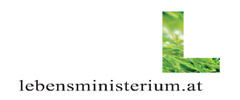EWA Uganda: "Cooking is not work?"
Gender mainstreaming for 22 community based organisations. A closer look at WECF’s partner AT Uganda
02.10.2014 |WICF

Two years before the EWA programme started in the Ugandan Kapchorwa and Kween districts in 2012, AT Uganda held in Kapchorwa a focus group discussion that showed, beside agricultural problems, also a gender problem .
"Cooking is not work"
Men and women had to create separately a gender labour calendar, where the supposed activities of men and women had to be written down. What followed after the presentation of the two calendars was a heated discussion. Men argued cooking was not work and women stated they were taking over a lot of the work that used to be the job of men. What the designing of the gender labour calendar showed was that the men and women did not always had a good picture of the workload or activities of the other sex. Also an appreciation and recognition of each other’s work seemed to be missing. In order to change these perspectives a training on gender issues was needed.
Inequalities in coffee farming
In 2013 a four-days training was organised by AT Uganda about organic agricultural solutions and gender mainstreaming for 22 NGO’s, community based organisations and community facilitators from the Kween and Kapchorwa districts. One of the objectives of the training was to teach men and women about gender issues in agriculture, including the need and process for gender mainstreaming.
Different gender problems were brought up in the training. In the Kapchorwa district exist an unequal gender position in the coffee farming. Both men and women are involved the harvest of coffee, but the men sell the coffee and spend the money without consulting the women. The reason behind this is that men are regarded as superior to women and therefore do not take the women’s wishes into account. Other issues included the blaming of women when they only give birth to girls, the exclusion of women for political positions and the exclusion of women in the decision making process, like the sale of farm products. In one of the regions uncircumcised women were prohibited to climb the granary and were tortured when they did so. There also existed an inheritance problem as most property is only entitled to men.
The participants learned next what has to be changed in order to solve the existing gender problems. Men and women have to be involved together in the things that they undertake; the decision making process, political meetings, control over the resources, budgeting at household level, marketing of agricultural products etc.
AT Uganda will keep working on empowering women in the two districts till the end of 2015. The focus on empowering women in the target villages is based on 4 pillars:
- The local trainings and meetings have to reach a certain rate of female participants (50-70% women),
- The families have to be taught how to increase their crop and food production and how to stop the local soil erosion by practicing conservation agriculture,
- The teaching of farming as a business; identification of for women attractive agricultural production and marketing strategies,
- The establishment of village saving and loan groups; enabling the women to do small investments.
Related News
Case studies from the EWA project in Uganda
In Uganda, WECF works with local partner organisations to introduce gender sensitivity trainings and conservation agriculture. Two participants in the trainings share their views
29.02.2016
Empower Women - benefit All Uganda: Conservation Agriculture increases yield of the farmers
Master thesis of Afke Jager from Wageningen University shows that use of Conservation Agriculture (CA) leads to higher yield of 30% on average
07.01.2016
WECF partner Gertrude Kabusimbi Kenyangi Wins Wangari Maathai Prize!
Collaborative Partnership on Forests honours Gertrude Kabusimbi Kenyangi
14.09.2015
EWA Uganda: lessons on farming as a business
“I did not know borrowing money affects the profits”
14.10.2014 | WICF
EWA Uganda: "Cooking is not work?"
Gender mainstreaming for 22 community based organisations. A closer look at WECF’s partner AT Uganda
02.10.2014 | WICF




































